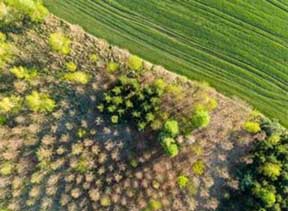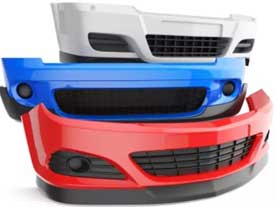Green tie-ups: Sabic/Kraton collaborate on renewable styrenic block copolymers; BASF/Reef Technology to improve quality of plastic recyclate materials

Chemical firm Sabic is in a new collaboration with Kraton, a sustainable producer of specialty polymers and biobased products derived from pine wood pulping co-products, to deliver certified renewable butadiene from its TRUCIRCLE portfolio for use in Kraton’s certified renewable styrenic block copolymers (SBC).
This effort forms part of Sabic’s 2025 strategy, which includes a Sustainability Development Goal roadmap spanning the organisation’s entire value chain and addressing 10 goals to help drive meaningful sustainable change.
Sabic’s certified renewable butadiene is derived from animal-free and palm oil-free ‘second generation’ renewable feedstock, such as tall oil, a by-product from the wood pulping process in the paper industry. This feedstock is not in direct competition with human food and animal feed production sources. According to the cradle-to-gate lifecycle analysis, from sourcing the raw feedstock to producing the polymers, each kilogram of the company’s bio-based butadiene reduces CO2 emissions by an average of 4 kg compared to fossil-based virgin alternatives. Additionally, each tonne of the butadiene also cuts fossil depletion by up to 80%.
Sabic’s certified renewable butadiene will be used in Kraton’s newly launched ISCC PLUS certified renewable CirKular+ ReNew Series to expand Kraton's existing suite of solutions designed to advance the circular economy. With up to 70% certified renewable content, the ReNew Series offers customers the opportunity to use the mass balance approach and adopt ISCC PLUS certification to produce renewable products. Kraton successfully produced CirKular+ ReNew Series Hydrogenated Styrenic Block Copolymers (HSBC) at the Berre plant earlier this year using Sabic’s renewable butadiene.

Meanwhile in other news, German chemical firm BASF has signed a strategic cooperation agreement with Zhejiang Reef Technology Co. to develop recyclate formulations for applications used in the automotive, packaging and consumer industries.
Under the agreement, BASF will provide its recently launched IrgaCycle additive solutions along with technical consultancy and support for recycled polymer formulations conducted at BASF’s test facilities.
“Our goal is to help deliver higher quality, safer and more effective products while supporting the plastic circular economy and helping reduce the use of virgin plastic material,” says Hermann Althoff, Senior Vice President, Performance Chemicals Asia Pacific. “In this way, we support our customers and partners to achieve their sustainability targets and create sustainable innovations together.”
“We wanted to partner with a world-class manufacturer of plastic additives like BASF to improve the quality of our recyclates,” says Shirley Wu, General Manager, Reef. “With its in-depth expertise in plastic additives, BASF supports us in this core area by improving the processing and long-term stability of highly contaminated recycled plastic fractions.”
IrgaCycle additive solutions help to increase the percentage of mechanically recycled content in several end-use applications such as packaging, automotive & mobility, and building and construction. These solutions address specific quality issues associated with recycled resins, such as limited processability, poor long-term thermal stability and insufficient protection from outdoor weathering.
The IrgaCycle range is offered as part of the Valeras portfolio. In addition to enabling plastics circularity with IrgaCycle, Valeras solutions bring significant sustainability value to plastic applications by improving durability, reducing waste, saving energy, reducing emissions, and promoting biodiversity.
Zhejiang Reef Technology Co., Ltd. is a subsidiary of Veolia Huafei Polymer Technology (Zhejiang) Co., Ltd., a joint venture company of the French Veolia Group in China. It focuses on the R&D and production of high-end engineering plastic modified materials. Reef’s core products include recycled polypropylene, high density polyethylene, ABS, and polyamide.
(PRA)
Subscribe to Get the Latest Updates from PRA Please click here
©2022 Plastics and Rubber Asia. All rights reserved.

©2022 Plastics and Rubber Asia. All rights reserved.
Home Terms & Conditions Privacy Policy Webmail Site Map About Us


















